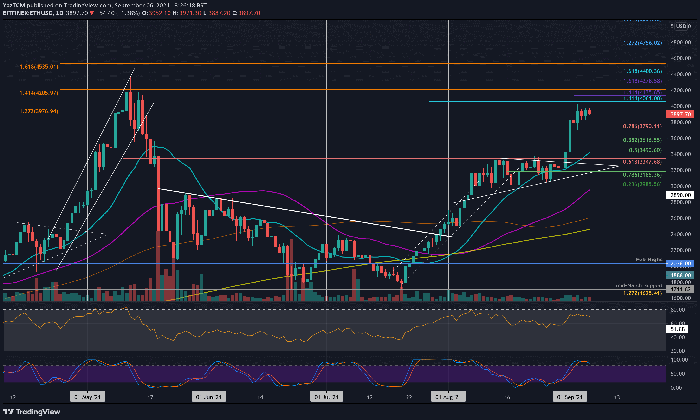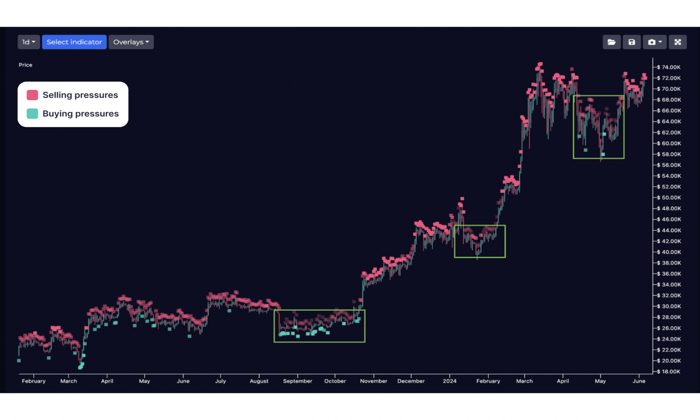Bitcoin reserve is emerging as a potential game-changer in the financial landscape, particularly in addressing the staggering national debt of the United States. VanEck’s bold prediction suggests that by establishing a BTC stockpile of one million Bitcoins within five years, the U.S. could significantly reduce its national debt by up to $21 trillion by 2049. As the price of Bitcoin is anticipated to soar to $21 million, this strategic accumulation could offset a substantial percentage of the national debt, which is projected to reach $116 trillion. Advocates, including Senator Cynthia Lummis, are rallying behind the BITCOIN Act, emphasizing the importance of bitcoins as assets in modern fiscal policy. With a growing interest in the viability of cryptocurrency reserves, the dialogue surrounding Bitcoin’s role in national debt management is more relevant than ever.
The concept of a Bitcoin reserve represents a transformative approach to managing national finances, particularly in light of escalating debt levels. This innovative strategy, often discussed in the context of Bitcoin as an asset, aims to establish a substantial BTC stockpile that could serve as a financial safety net. Advocates for the initiative, including prominent figures like Senator Lummis, view this as an essential step towards mitigating the national debt crisis. As the market for cryptocurrency evolves, the idea of integrating digital assets into governmental financial reserves is gaining traction, sparking debates about its feasibility and potential impact on the economy. This discussion not only highlights the growing relevance of Bitcoin but also positions it as a pivotal element in shaping future fiscal strategies.
The Potential Impact of a Bitcoin Reserve on National Debt
VanEck’s prediction of a one million Bitcoin reserve within the next five years presents a transformative opportunity for the U.S. economy. By accumulating this substantial BTC stockpile, the U.S. government could strategically position itself to combat the escalating national debt, projected to reach over $116 trillion by 2049. With Bitcoin’s anticipated price soaring to $21 million, this reserve could potentially offset a staggering $21 trillion of that debt, accounting for approximately 18% of the total. Such a shift would not only alleviate financial burdens but also reshape the narrative around national fiscal responsibility.
The implications of a U.S. Bitcoin reserve extend beyond mere debt reduction. As cryptocurrency continues to gain traction as a viable asset class, integrating Bitcoin into national reserves could bolster the global standing of the U.S. dollar. This move aligns with the views of advocates like Senator Cynthia Lummis, who believes that leveraging Bitcoin could correct historical financial missteps while providing a robust framework for future economic stability. By embracing Bitcoin as an asset, the U.S. government could set a precedent for other nations, potentially fostering a new era of financial innovation.
Understanding the BITCOIN Act and Its Implications
The BITCOIN Act, championed by Senator Lummis, proposes a legislative framework for establishing a significant Bitcoin reserve in the U.S. This initiative is designed to facilitate the government’s accumulation of one million BTC by 2029, a move that could drastically reshape economic strategies in the face of rising national debt. Supporters of the BITCOIN Act argue that this legislation is not merely a speculative endeavor but a necessary step towards securing financial stability for future generations. By formalizing the U.S. BTC reserve, the government would acknowledge Bitcoin’s potential as a legitimate asset class.
Despite growing enthusiasm around the BITCOIN Act and the proposed reserve, the bill has yet to gain traction in Congress. This delay raises questions about the political will to embrace cryptocurrency within traditional financial frameworks. As the national debt continues to climb at a CAGR of 5%, the urgency for innovative solutions becomes critical. Proponents assert that the BITCOIN Act could provide a much-needed pathway to reduce the debt, while critics warn of the risks associated with integrating volatile assets like Bitcoin into national reserves.
VanEck’s Bitcoin Price Predictions and Economic Forecasts
VanEck’s analysts forecast that Bitcoin could experience explosive growth, with a projected price increase from $100,000 to an astonishing $21 million over the next 24 years. This forecast operates on a compounded annual growth rate (CAGR) of 25%, a figure that reflects the growing acceptance of Bitcoin as a mainstream asset. If these predictions hold true, the establishment of a Bitcoin reserve could be a game-changer for U.S. financial policy, potentially providing a hedge against the unsustainable rise of national debt.
This optimistic outlook for Bitcoin’s price is underpinned by the increasing institutional adoption of cryptocurrencies and the ongoing evolution of digital assets. As more investors recognize Bitcoin’s potential as a store of value akin to gold, the demand for BTC is expected to surge. VanEck’s forecasts suggest that the U.S. government could harness this momentum to create a viable financial strategy that not only addresses the national debt but also positions the U.S. as a leader in the global cryptocurrency landscape.
International Perspectives on Bitcoin Reserves
The concept of a Bitcoin reserve is gaining traction beyond U.S. borders, with various countries exploring its integration into national financial strategies. For instance, Venezuela’s opposition leader, María Corina Machado, has advocated for the inclusion of Bitcoin as a means to reclaim lost wealth and support the vulnerable. This reflects a growing recognition of Bitcoin’s potential not just as an investment but as a tool for economic resilience in struggling economies.
Similarly, Switzerland’s National Bank is evaluating the utility of Bitcoin alongside traditional assets like gold. This trend indicates a broader acceptance of Bitcoin as a serious financial instrument, with nations beginning to recognize its potential in diversifying reserves and stabilizing economies. However, the reception of such initiatives is mixed; while some see them as innovative, others, like former BitMEX CEO Arthur Hayes, criticize them as politically motivated rather than financially sound.
Challenges Facing Bitcoin as a National Asset
While the idea of accumulating a Bitcoin reserve presents numerous potential benefits, several challenges must be addressed for it to be viable. One of the most significant obstacles is the inherent volatility of the cryptocurrency market. Bitcoin’s price can fluctuate dramatically, posing risks to financial stability if the asset is integrated into national reserves. This volatility raises concerns about the long-term feasibility of using Bitcoin as a hedge against national debt.
Additionally, regulatory hurdles remain a significant barrier to the widespread adoption of Bitcoin as a national asset. The lack of comprehensive legislation governing cryptocurrencies means that the future of initiatives like the BITCOIN Act is uncertain. Until lawmakers can create a clear framework for the use of Bitcoin in public finance, the potential of a U.S. BTC reserve could remain unrealized, leaving both supporters and skeptics questioning the practicality of such a strategy.
The Role of Bitcoin in Future Economic Strategies
Bitcoin’s trajectory as an asset class is increasingly being viewed through the lens of future economic strategies. With the national debt posing a growing threat to fiscal health, Bitcoin could emerge as a crucial tool for governments seeking innovative solutions. By incorporating Bitcoin into their financial strategies, nations could potentially create new revenue streams and investment opportunities that align with the digital economy.
Furthermore, as more individuals and institutions adopt Bitcoin, the demand for cryptocurrencies is likely to increase, which could stabilize prices over time. This shift could encourage governments to view Bitcoin not only as a speculative asset but as an integral part of their financial planning. Embracing Bitcoin could also signify a broader acceptance of digital currencies in the global economy, positioning early adopters at the forefront of financial innovation.
Bitcoin and the Future of Monetary Policy
The integration of Bitcoin into national reserves could have profound implications for monetary policy. As central banks grapple with the challenges of inflation and debt management, Bitcoin offers an alternative asset that could serve as a hedge against traditional financial risks. The volatility of Bitcoin may present challenges, but its potential as a deflationary asset could provide a counterbalance to the inflationary pressures faced by fiat currencies.
Moreover, as the world moves towards digital currencies, incorporating Bitcoin into monetary policy could enhance the effectiveness of government interventions in the economy. This would require a paradigm shift in how policymakers view cryptocurrencies, recognizing them as legitimate components of financial systems. Such a transformation could pave the way for greater innovation in monetary policy, with Bitcoin playing a central role in shaping the future of financial governance.
Global Adoption of Bitcoin: A Comparative Analysis
The global landscape for Bitcoin adoption is diverse, with countries at varying stages of integrating cryptocurrency into their economies. While some nations are actively exploring the potential of Bitcoin reserves, others remain skeptical, viewing it as a speculative bubble. This divergence creates a unique opportunity for comparative analysis, allowing economists and policymakers to examine the outcomes of Bitcoin adoption across different jurisdictions.
Countries like Venezuela and Switzerland demonstrate the potential benefits of Bitcoin in enhancing economic resilience and diversifying national assets. In contrast, skepticism in countries with more stable economies reflects concerns over the volatility and regulatory challenges associated with cryptocurrencies. Understanding these differing perspectives is crucial for shaping future policies and determining the role of Bitcoin in global finance.
The Future of Bitcoin Legislation in the U.S.
As the dialogue around Bitcoin and cryptocurrency legislation evolves, the future of such regulations remains uncertain. The BITCOIN Act represents a significant step towards acknowledging the potential of Bitcoin as a national asset. However, for this legislation to move forward, it must overcome political resistance and address concerns regarding the implications of integrating cryptocurrencies into traditional financial systems.
The outcome of this legislative process will have far-reaching consequences, not just for the U.S. economy but for global perceptions of Bitcoin as a legitimate asset class. As lawmakers continue to debate the merits and challenges of a Bitcoin reserve, the trajectory of Bitcoin legislation could ultimately influence how cryptocurrencies are regulated worldwide, setting a precedent for other nations to follow.
Frequently Asked Questions
What is the significance of a Bitcoin reserve in relation to the national debt?
A Bitcoin reserve could significantly impact the national debt by acting as a financial asset that appreciates in value. According to VanEck’s prediction, accumulating a reserve of 1 million BTC could help reduce the national debt by $21 trillion by 2049, provided Bitcoin’s price rises to $21 million per BTC.
How does the BITCOIN Act propose to establish a BTC stockpile?
The BITCOIN Act suggests that the U.S. government should accumulate a Bitcoin stockpile of 1 million BTC by 2029. This strategic move, endorsed by advocates like Senator Cynthia Lummis, aims to leverage the cryptocurrency’s potential increase in value to offset the national debt significantly.
Can Bitcoin be considered as a legitimate asset for reducing national debt?
Yes, Bitcoin is increasingly viewed as a legitimate asset that could help reduce national debt. Predictions, such as those from VanEck, suggest that a well-managed Bitcoin reserve could appreciate in value and provide financial relief against growing national debt over time.
What are the potential economic implications of a U.S. Bitcoin reserve?
The establishment of a U.S. Bitcoin reserve could lead to significant economic implications, including a strengthened dollar position globally and reduction of the national debt. If Bitcoin’s value rises as projected, it could account for about 18% of the U.S. national debt by 2049.
How does the VanEck prediction relate to Bitcoin’s growth and national debt?
VanEck predicts that Bitcoin will grow at a compounded annual growth rate of 25%, which, if accurate, could see its price reach $21 million per BTC. This growth would be crucial in offsetting the national debt projected to increase to $116 trillion by 2049.
What other countries are considering a Bitcoin reserve?
Countries like Venezuela and Switzerland are exploring the concept of a Bitcoin reserve. Venezuela’s opposition leader suggests it could aid the economy, while Switzerland’s National Bank is assessing Bitcoin’s role as a backup asset alongside gold.
What challenges does the BITCOIN Act face in implementing a Bitcoin reserve?
The BITCOIN Act faces challenges such as legislative review and approval by the Senate and House. While the concept is gaining traction, it requires significant political support and infrastructure to establish a Bitcoin reserve effectively.
What is the role of Bitcoin in addressing economic burdens for future generations?
Bitcoin is seen as a potential remedy for economic burdens, as proposed by advocates like Senator Lummis. By establishing a Bitcoin reserve, the U.S. could rectify past financial errors and alleviate debt burdens placed on younger generations.
What are the risks associated with creating a BTC stockpile?
The risks of creating a BTC stockpile include market volatility, regulatory hurdles, and the potential for political misuse. Critics argue that such a strategy may prioritize political interests over long-term financial stability.
| Key Point | Details |
|---|---|
| Prediction of National Debt Reduction | VanEck suggests that the U.S. could reduce its national debt by $21 trillion over 24 years through a BTC reserve. |
| Bitcoin Reserve Proposal | The plan involves accumulating 1 million Bitcoins by 2029, in line with the BITCOIN Act. |
| Projected Bitcoin Price Increase | Bitcoin price is expected to rise to $21 million by 2049, assuming a CAGR of 25%. |
| Impact on National Debt | If successful, this reserve would offset about 18% of the projected national debt in 2049. |
| Support from Political Figures | Senator Cynthia Lummis supports the BTC reserve as a strategy to address national debt. |
| International Interest | Other countries like Venezuela and Switzerland are exploring Bitcoin reserves for economic benefits. |
| Criticism of the Proposal | Former BitMEX CEO Arthur Hayes argues that the BTC stockpile is impractical for financial stability. |
Summary
Bitcoin reserve could revolutionize how the U.S. manages its national debt. VanEck’s analysis indicates that accumulating a million Bitcoins could potentially offset a staggering $21 trillion in debt by 2049, contingent on the cryptocurrency’s value skyrocketing to $21 million. This innovative approach, supported by figures like Senator Lummis, aims to provide a long-term solution to current economic challenges while also garnering international interest. However, the feasibility of such a strategy remains debated among financial experts.
Bitcoin reserve is becoming a key topic among financial analysts and policymakers, especially in light of recent predictions by VanEck. The firm forecasts that the United States could significantly lower its national debt by establishing a BTC stockpile of one million bitcoins within five years. This ambitious proposal could lead to a dramatic reduction of the national debt, potentially offsetting around $21 trillion by 2049, should the price of Bitcoin skyrocket to $21 million. Supported by the BITCOIN Act, which aims to formalize this reserve, proponents like Senator Cynthia Lummis believe that such an initiative could not only stabilize the economy but also enhance the U.S. dollar’s global standing. As discussions around bitcoins as assets intensify, the implications for national debt reduction are becoming increasingly relevant.
The concept of a Bitcoin reserve, often referred to as a BTC stockpile, is gaining traction as a potential solution to economic challenges faced by nations. Analysts are exploring the idea that accumulating a significant amount of Bitcoin could serve as a hedge against rising national debt levels. With projections suggesting that the price of this digital currency could soar, the idea of integrating cryptocurrencies into national reserves presents a novel approach to financial stability. The BITCOIN Act, championed by forward-thinking lawmakers, exemplifies the legislative efforts to formalize such reserves, aiming to leverage the growing acceptance of bitcoins as assets. As governments worldwide contemplate similar strategies, the discourse surrounding Bitcoin’s role in economic resilience continues to evolve.















